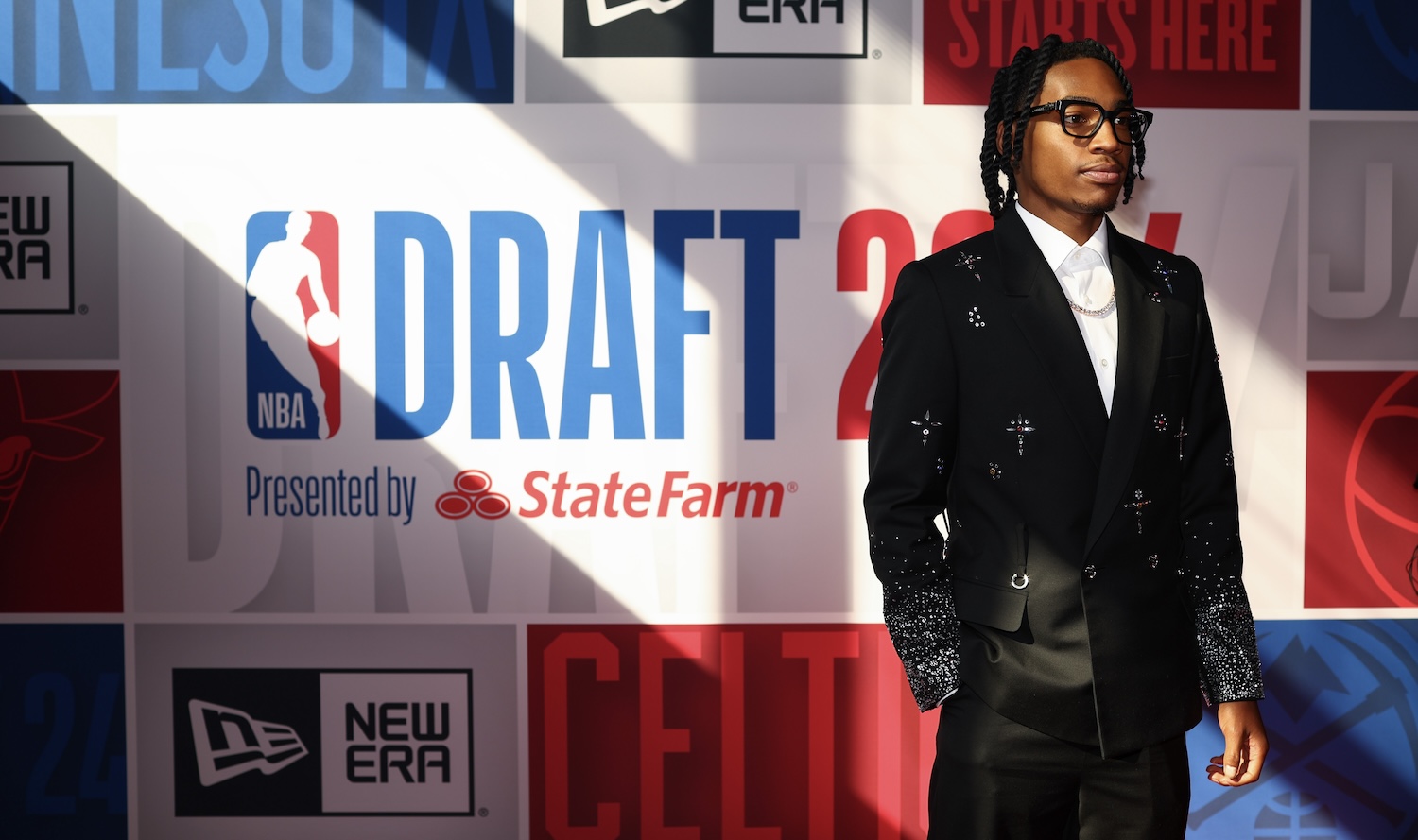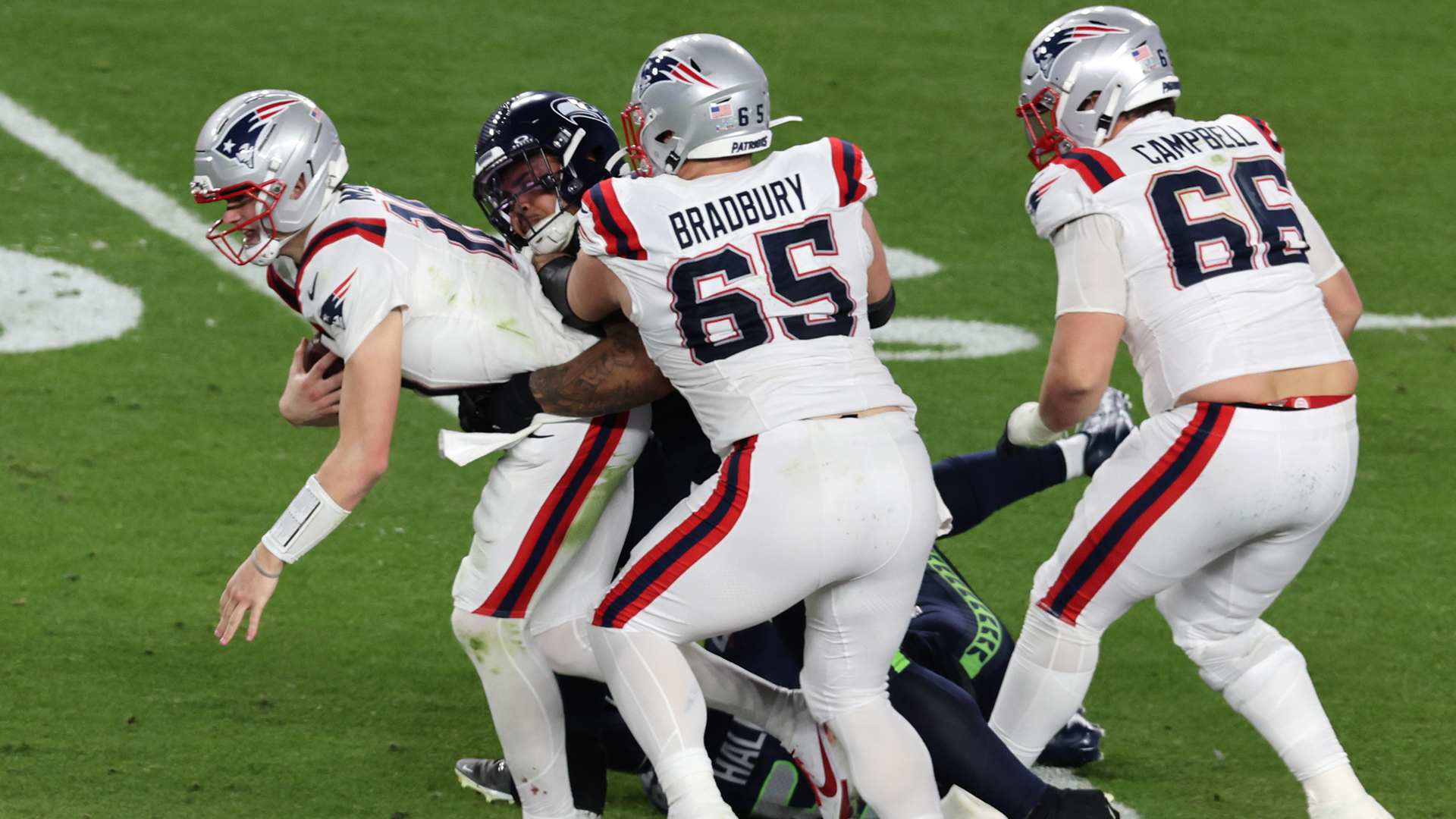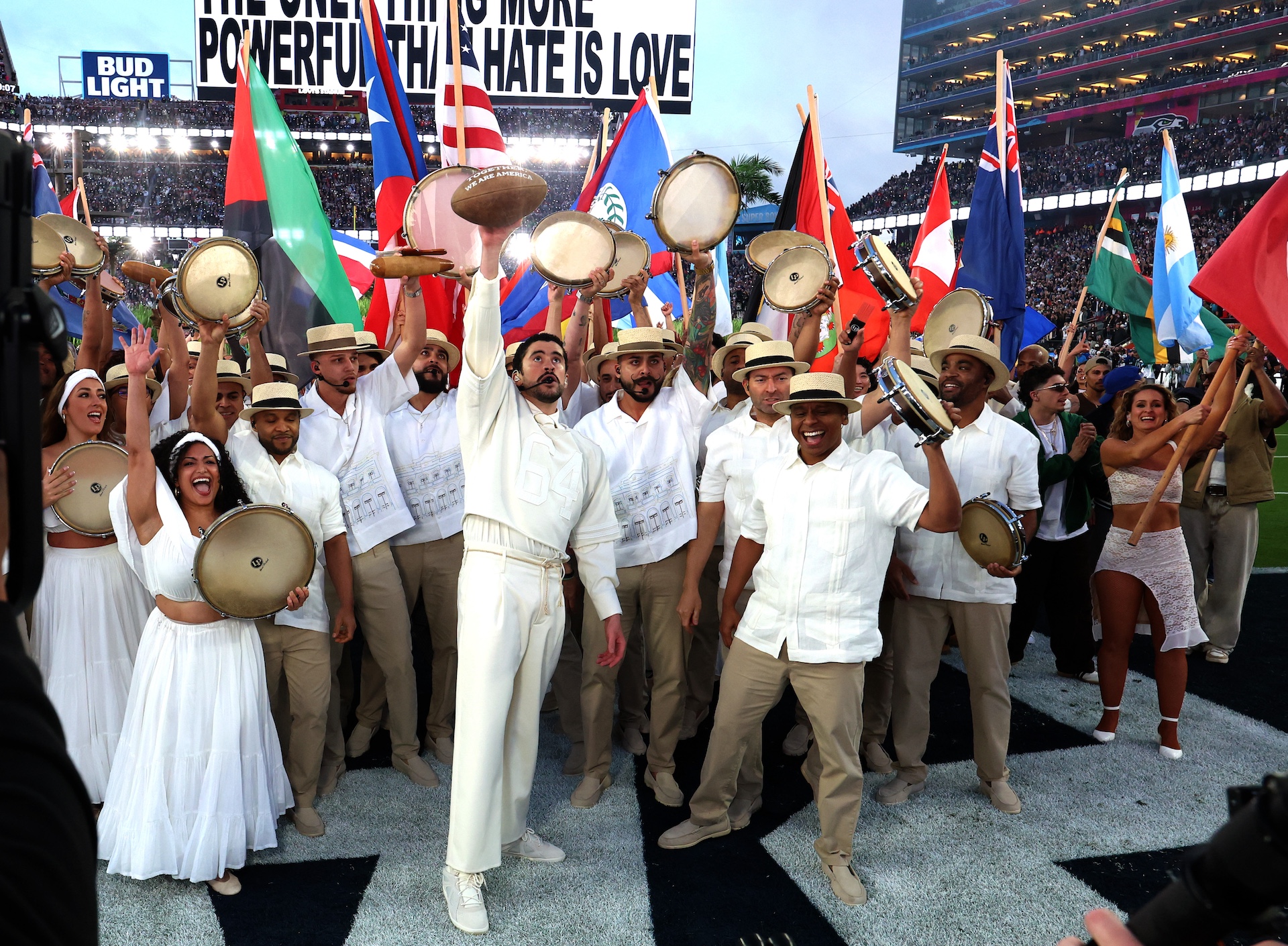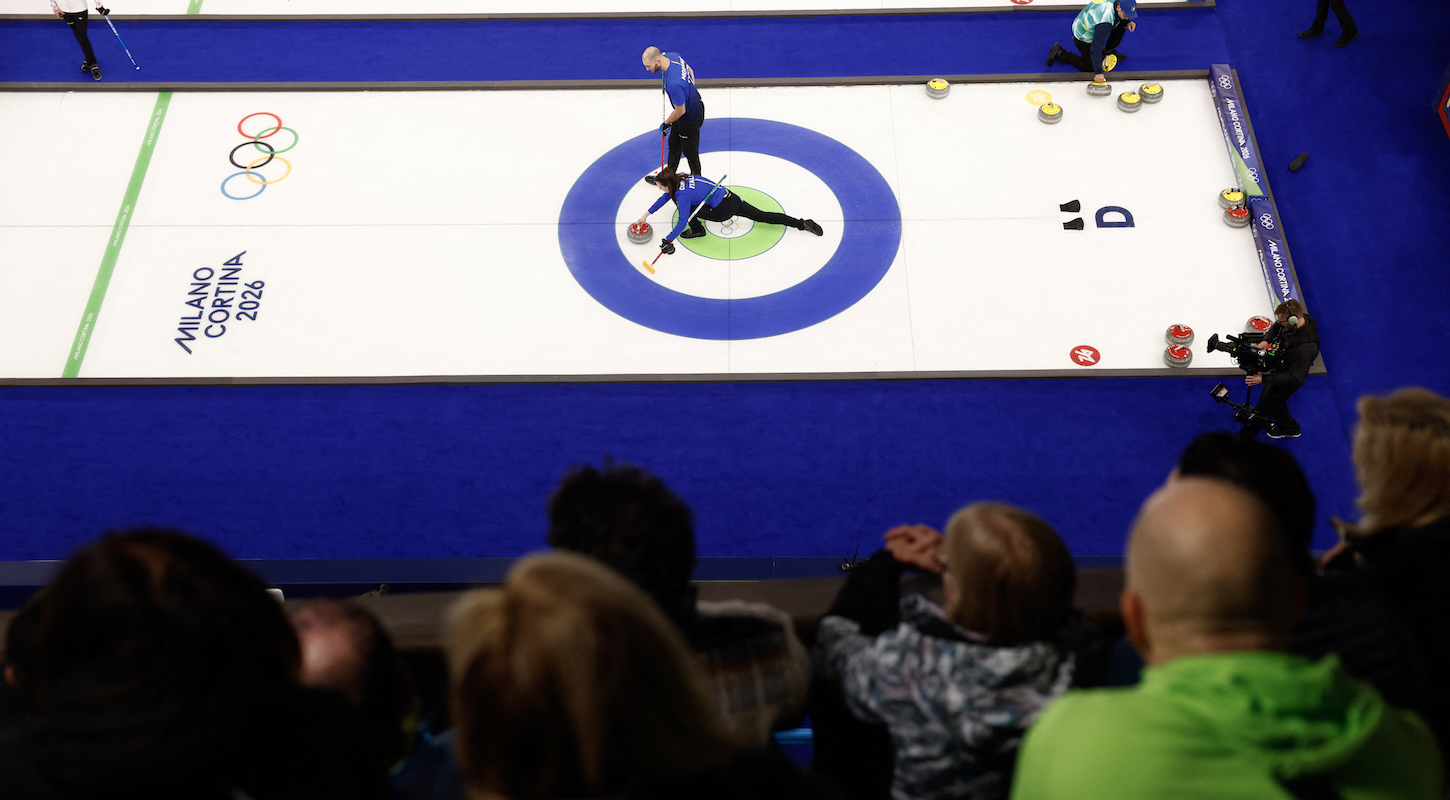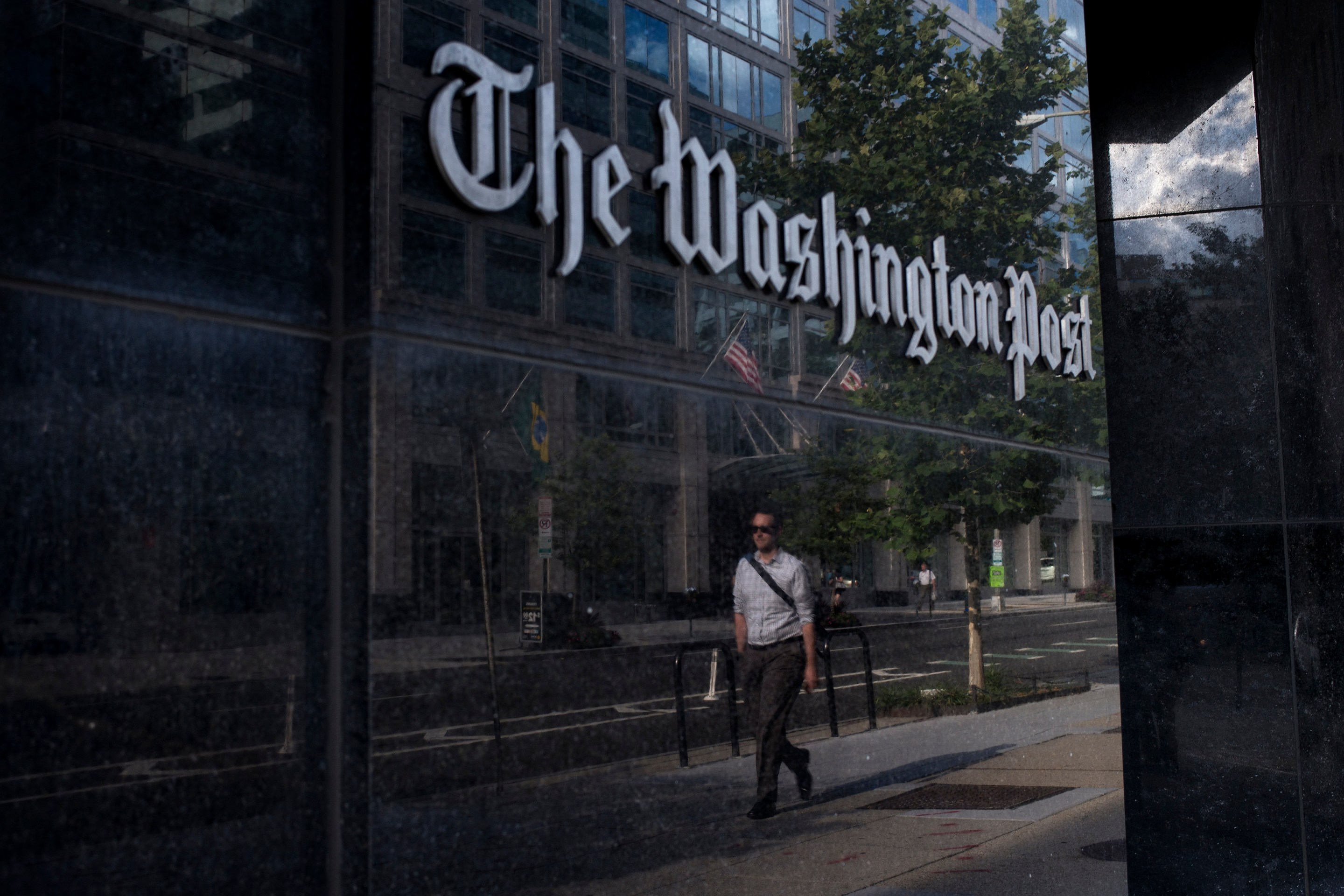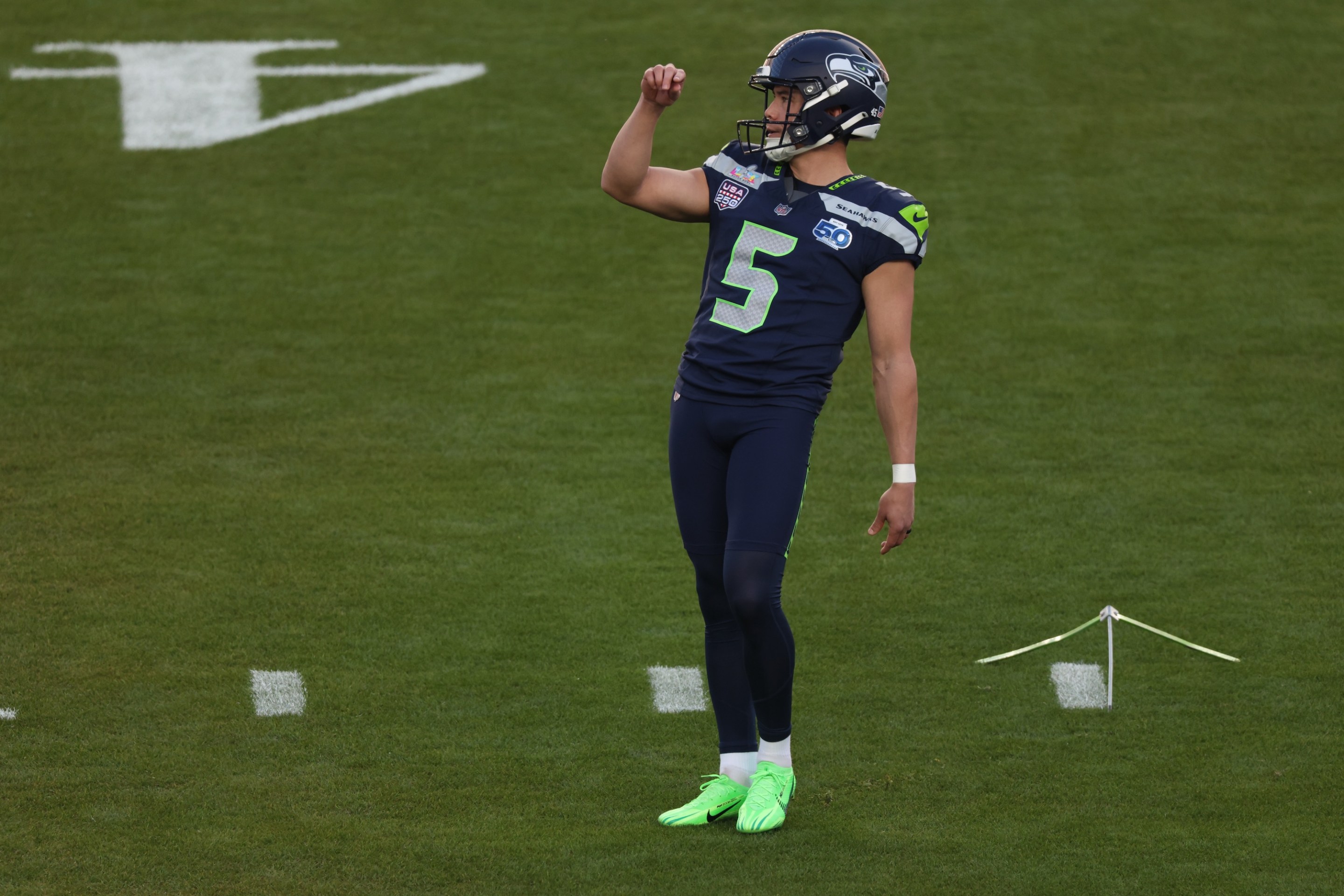Thanks to Masai Ujiri's ill-fated obsession with Jakob Poeltl, the San Antonio Spurs came into Wednesday night's first round of the NBA Draft as the most intriguing team in the lottery. They had their own pick at four and Toronto's pick at eight, and given that they already have the best young player since LeBron James on their roster and therefore might be unable to meaningfully tank ever again, an interesting decision loomed: Should San Antonio use what might be their last time drafting this high to take two players in hopes of cementing a core around Victor Wembanyama? Or should they try to get better immediately, say, by trading the Hawks some picks for one of Atlanta's boneheaded guards? In other words, the question they had to answer was When do we truly want to compete for the championship?
I have always loved the theater of the draft, not merely the televised spectacle of young guys wearing cool outfits and putting on goofy hats, but the way the time crunch of all 30 teams being on the clock forces some teams to show their hands. The Spurs did so, and they surprised by choosing neither path, trading the eighth pick to Minnesota for a 2030 pick swap and a 2031 first-rounder. The Timberwolves picked Rob Dillingham, who is cool as hell. Why would the Spurs trade one of their precious lottery picks for the draft rights to a player who is currently 11 years old? Why would a conference finalist already out a ton of picks trade another pick for a 6-foot-1 guy who can't play defense? It's a fascinating trade, one that only makes sense in the context of the apron-centric CBA.
The Wolves' end is easier to parse. No matter who wins this summer's ownership scuffle, the Wolves are scraping up against the hardest of hard caps, as they are one of the six NBA teams operating under the restrictive second apron. The new CBA imposed for the first time a de facto hard cap, with teams exceeding the second apron (roughly 20 percent above the salary cap line) restricted from buying second-round picks, using the taxpayer midlevel exception, using cash to make trades, aggregating player salaries in trades, or trading their first-round pick seven years out, and if they hit the second apron twice in a four-year period, their first-round picks are automatically bumped to the back of the draft. Those new rules are stacked on top of the punitive luxury tax rules that charge teams more the higher they are over the tax; Dillingham's rookie deal at $6.5 million will cost the Wolves some extra $28 million.
Trading away a pick far in the future was simply an additional cost the Wolves had to pay in order to bring a new player in now. Extensions for Anthony Edwards and Jaden McDaniels both kick in this year, the same year Kyle Anderson, Monte Morris, and Jordan McLaughlin come off the books, making it functionally impossible to keep them or replace them with free agents. Minnesota is not unique in this pain, with Nuggets GM Calvin Booth all but saying Kentavious Caldwell-Pope would have to be sacrificed to stay under the second apron. With their hands tied, and unable to buy a second-rounder, the Wolves swung bigger and brought in a dynamic scorer who fits with their team. It was one of the only ways they could have tinkered with their roster, and with draft restrictions so severe for apron teams, one wonders whether they will have to be more deliberate about keeping younger players on the roster to develop.
As for the Spurs, this trade can be read as an unmistakable vote of confidence in Wembanyama. They picked Stephon Castle from UConn at four, who should be useful as he immediately becomes one of two players on that godforsaken roster capable of passing the basketball, and could be part of the core of a good team if he fixes his shot. But the Spurs eschewed the chance to add another player, or, as many speculated, pursue a reasonably available star. The logic there was that Wembanyama might be a frenzied competitor who is too locked in to want to stay on the Spurs for a more deliberately paced rebuild, though I chalk that theory up to a case of the ESPN-Laker Industrial Complex more than anything real.
What San Antonio affirmed is that they have nothing to rush. Wemby is going to be one of the best players in the league very soon, and the cost of panic-selecting someone in a weak draft just to take someone is dipping into the precious, limited supply of minutes and opportunities on the Spurs roster for someone who ultimately does not have the juice. Instead, they showed their intended timeline. They have a quiver of first-rounders that will convert right around what looks like the early part of Wemby's prime, allowing them the flexibility to build the roster slowly now while retaining the ability to add final pieces when they are theoretically closer to contention.
That's an impressive level of foresight, and I'd argue it's informed by the restrictive CBA. The Spurs have paid the luxury tax in the past, though only when they have been prime championship contenders. Wemby's talents are such that San Antonio will probably compete at a high level for a long time, but not for an infinite one. What they're doing is setting up that future window of contention, stacking picks either for trades, or, alternately, to bring a cost-controlled player onto a team that could be close to donning an apron or two.
One wonders if the Wolves and Nuggets both having to get younger in the name of avoiding cap hell will increase parity in a rapidly flattening league. That might be good for competitive purposes, though it sucks to see great teams have to squirm like this, with someone like KCP hitting the road because the players ceded a near-hard cap in CBA negotiations. Windows should stay open longer. But since they don't, smart teams will start thinking about how to maximize them years ahead of time.
